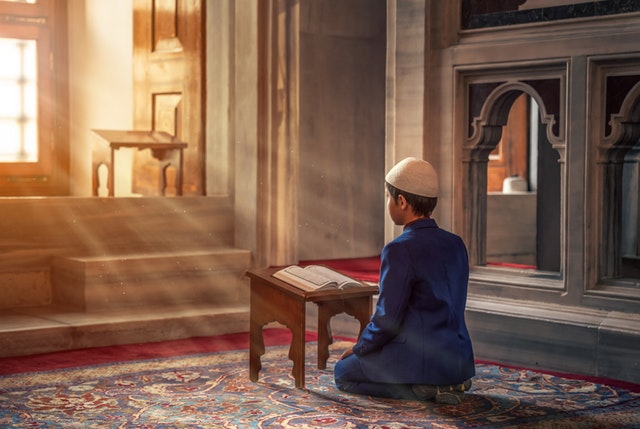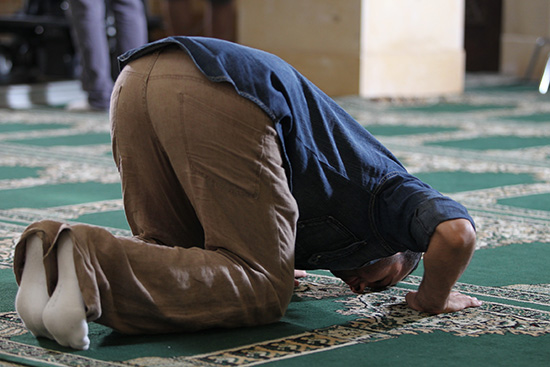Current Section: model

Lesson Legislated Forms of Protecting Oneself
With the rising wave of panic among people from diseases and epidemics; Muslims, while taking the material reasons, also fortify themselves using the means available to them.

The first and greatest way for a believer to fortify himself during times of trials and tribulations is to take refuge in Allah seeking protection from Him to repel evil. Yusuf (peace be upon him), when the wife of the Chief Minister tried to seduce him, said: (Allah is my refuge!) (Yusuf:23). Maryam (peace be upon her), when Angel Jibreel came to her in the form of a man: (She appealed, “I truly seek refuge in the Most Compassionate from you!) (Maryam:18)

Being humble towards Allah. Having a sense of need and want toward Allah to raise the calamity and remove the grief. Supplication is the fortification of the Muslim and his weapon. Once the calamity befalls by the decree of Allah, nothing can remove it except supplication. The Prophet ﷺ said: «Nothing can repel decree except supplication.» (At-Tirmidhi, 2139)

Seeking a remedy from the Quran because it has a cure for every ailment, physical or otherwise. (We send down the Quran as a healing and mercy for the believers).(Al-Isra:82) With faith, certainty, and honesty, the reasons for the cure multiply due to the saying of Allah: (Say, ˹O Prophet,˺ “It is a guide and a healing for the believers) (Fussilat:44)

The entire Quran is a cure. However, some chapters and verses have been mentioned to have specific virtues, such as Surat Al-Fatiha and the chapters for seeking refuge (chapters 113 and 114), as well as Ayat al-Kursi (Verse of the Throne). Ibn al-Qayyim (may Allah have mercy upon him) said: If the slave properly sought a cure from Surat Al-Fatiha, he would see an amazing effect. I stayed in Makkah for a period of time, and I was sick and unable to find a doctor or medicine. So I sought to cure myself by reading it (Surat Al-Fatiha) and saw the amazing effect it had on me. Thereafter, I would prescribe that to anyone that complained of pain, and many would get relief from that pain quickly.
More specifically, the morning prayer, due to the statement of the Prophet ﷺ: «Whoever prayers the morning prayer, then he is under the protection of Allah» (Muslim, 657)

The most important form of self-fortification is supplicating when seeing a sick person or people who have been struck with a calamity. In a narration, the Prophet ﷺ said: «Whoever sees an afflicted person, then says: 'Praise be to God who has kept me free from the affliction He has brought on him and has shown me favor above many whom He has created,' that affliction, whatever it may be, will not harm him.» (At-Tirmidhi, 3432)

Adherence to Allah's remembrance contains much good in this life and brings great reward in the next life. The morning and evening Adhkaar are the most important, and a Muslim should stick with them. The benefits are a feeling of relief, tranquillity of the heart, Allah's special protection, and Allah remembering His slave with the high gathering.

Supplications, remembrances, and religious phrases of fortification include:
Reading Ayat al-Kursi before going to sleep:
There is a narration that someone said to Abu Hurairah (may Allah be pleased with him): "When you go to bed, read Ayat al-Kursi, you will have a protector from Allah watch over you, and no devil can come near you until the morning. So the Prophet ﷺ: «He told you the truth, even though he is a liar» (Al-Bukhari, 3275)
Reading the last two verses of Surat Al-Baqarah:
Ibn Masud reported that the Prophet ﷺ said: «Whoever reads the last two verses of surah Al-Baqarah at night will suffice him.» (Al-Bukhari, 5008, Muslim, 808)
Making a lot of Tasbeeh (saying Subhanallah) and Istigfaar (saying I seek forgiveness from Allah 'Astaghfirullah'):
If a slave constantly makes Tasbeeh and Istighfaar, Allah will repel harm from him and affliction. Allah says: (But Allah would never punish them while you ˹O Prophet˺ were in their midst. Nor would He ever punish them if they prayed for forgiveness.) (Al-Anfaal:33)


